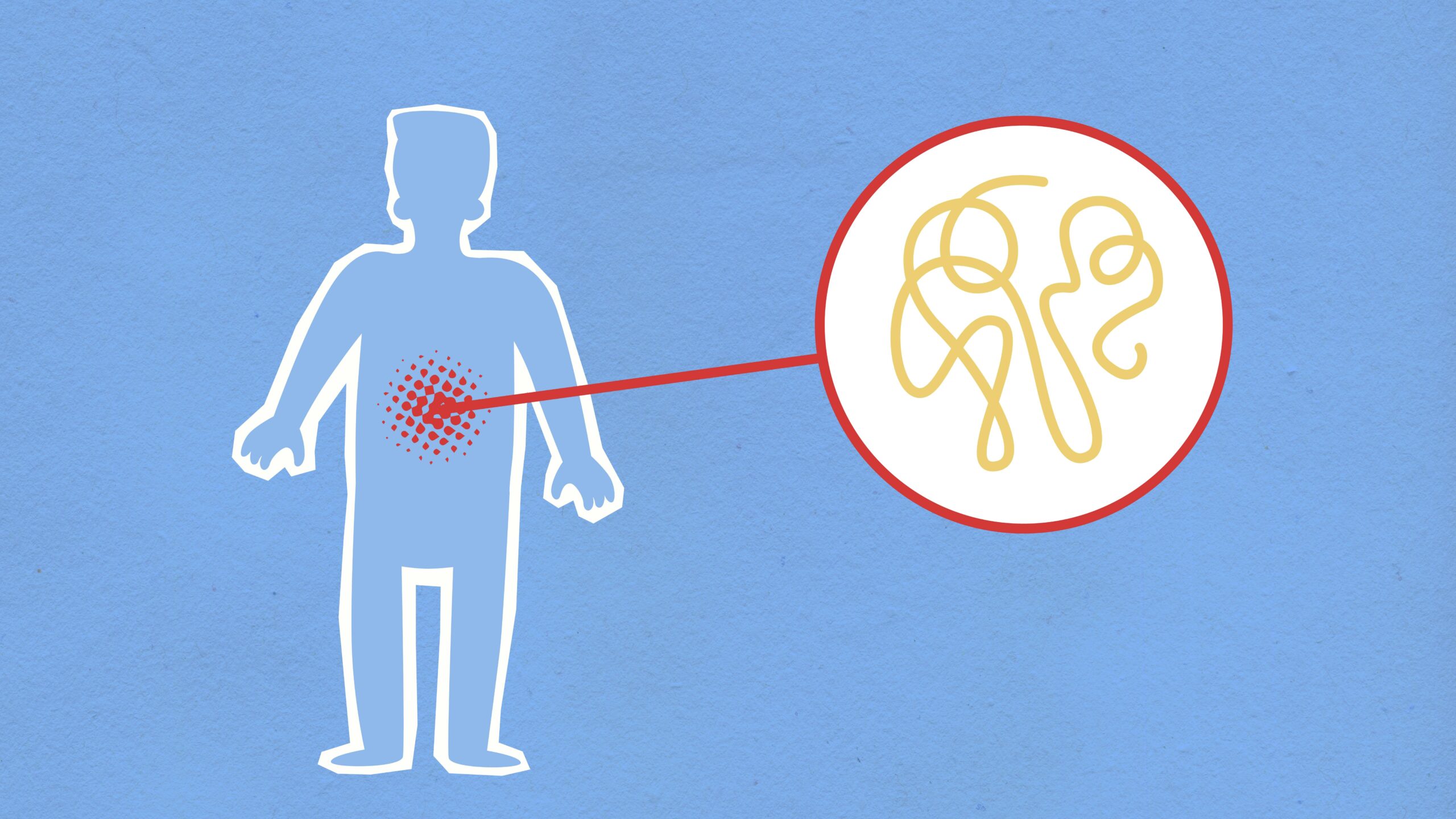The convergence of genomic science and collective intelligence is reshaping modern medicine, creating unprecedented opportunities for personalized healthcare and disease prevention through shared DNA insights.
🧬 The Dawn of Collaborative Genomics
We stand at the threshold of a healthcare revolution driven by collective genetic intelligence. This emerging paradigm transcends traditional medical approaches by harnessing the power of aggregated genomic data from diverse populations. Unlike conventional healthcare models that treat genetic information as isolated data points, this collaborative framework recognizes that our DNA tells interconnected stories that become exponentially more valuable when analyzed together.
The concept of collective genetic intelligence rests on a simple yet profound principle: individual genetic variations gain meaning through comparison and context. When thousands or millions of people contribute their genetic information to shared databases, patterns emerge that would remain invisible in isolated analyses. These patterns reveal connections between genetic variants and health outcomes, drug responses, and disease susceptibilities that single-patient studies could never uncover.
Major research institutions and biotechnology companies have already begun building massive genetic databases. The UK Biobank contains genetic and health information from over 500,000 participants, while projects like the All of Us Research Program in the United States aim to gather data from one million or more individuals. These initiatives demonstrate growing recognition that collective genetic knowledge represents our most powerful tool for understanding human health.
Breaking Down the Science Behind Shared DNA Insights
Genetic intelligence operates on multiple analytical levels, each contributing unique insights to our understanding of human health. At the most fundamental level, researchers identify single nucleotide polymorphisms (SNPs) variations at specific positions in our DNA sequence that occur across populations. Some SNPs have known associations with particular conditions, while others remain mysteries waiting to be decoded through collective analysis.
Beyond individual variants, scientists examine haplotypes blocks of DNA inherited together that can reveal ancestral origins and predispositions to certain conditions. When analyzed across large populations, haplotype patterns help researchers understand how genetic variants interact and why certain combinations increase or decrease disease risk. This multilayered approach to genetic analysis becomes exponentially more powerful as dataset sizes increase.
Machine learning algorithms now play a critical role in extracting meaningful insights from vast genetic datasets. These sophisticated tools can identify subtle patterns and correlations that human researchers might miss, predicting disease risks and treatment responses with increasing accuracy. As more genetic data feeds into these systems, their predictive capabilities improve, creating a virtuous cycle of enhanced understanding.
Transforming Disease Prevention Through Population Genetics 🏥
Collective genetic intelligence is revolutionizing our approach to disease prevention by identifying at-risk individuals before symptoms appear. For conditions with strong genetic components like certain cancers, cardiovascular diseases, and neurodegenerative disorders shared genetic insights enable targeted screening and early intervention strategies that can dramatically improve outcomes.
Polygenic risk scores represent one of the most promising applications of collective genetic data. These scores aggregate information from numerous genetic variants to estimate an individual’s likelihood of developing specific conditions. Unlike single-gene tests that identify rare mutations with dramatic effects, polygenic scores capture the cumulative impact of many common variants, providing risk assessments for conditions that affect large portions of the population.
The power of polygenic risk scores lies in their population-level derivation. Creating an accurate score requires analyzing genetic data from thousands of individuals with and without the condition in question. As datasets grow more diverse and comprehensive, these scores become more accurate and applicable across different ethnic backgrounds, addressing historical biases in genetic research that focused predominantly on European populations.
Precision Medicine Reaches New Heights
Pharmacogenomics the study of how genetic variations affect drug responses exemplifies the practical benefits of collective genetic intelligence. Different people metabolize medications at different rates due to genetic variations in liver enzymes and drug transporters. By analyzing genetic data alongside medication response information from diverse populations, researchers can predict which drugs will work best for specific genetic profiles.
This knowledge directly translates to better patient care. Oncologists now use genetic testing to select chemotherapy regimens most likely to benefit individual cancer patients while avoiding toxic side effects. Psychiatrists consider genetic factors when prescribing antidepressants, reducing the trial-and-error period that often frustrates mental health treatment. As our collective genetic database expands, these precision medicine applications will extend to virtually every medical specialty.
The Infrastructure Enabling Genetic Collaboration 💻
Building effective systems for collective genetic intelligence requires sophisticated technological infrastructure. Secure cloud-based platforms enable researchers worldwide to access and analyze shared genetic data while protecting participant privacy. Standardized data formats ensure that information from different sources can be integrated and compared, while advanced encryption and anonymization techniques safeguard sensitive genetic information.
Blockchain technology is emerging as a potential solution for managing consent and data governance in genetic databases. Distributed ledger systems can create transparent, immutable records of who accesses genetic data and for what purposes, giving participants greater control over their information while facilitating legitimate research. These technological innovations address privacy concerns that have historically limited genetic data sharing.
Computational power represents another critical infrastructure component. Analyzing millions of genetic sequences and cross-referencing them with health outcomes requires massive processing capabilities. Cloud computing platforms and specialized bioinformatics software have made these analyses accessible to researchers beyond elite institutions, democratizing genomic research and accelerating discovery.
Addressing Ethical Considerations and Privacy Concerns 🔐
The collection and analysis of genetic data on massive scales raises profound ethical questions that society must address thoughtfully. Privacy concerns top the list genetic information reveals intimate details about individuals and their families, including predispositions to diseases, ancestral origins, and even behavioral tendencies. Ensuring that this sensitive information remains secure and is used only for approved purposes requires robust governance frameworks.
Informed consent becomes more complex in the context of collective genetic intelligence. Traditional consent models assume specific, limited uses of data, but genetic databases often support research questions not yet formulated when samples were collected. Dynamic consent models that allow participants to specify preferences for different types of research and update their choices over time represent one approach to this challenge.
Genetic discrimination concerns persist despite legal protections like the Genetic Information Nondiscrimination Act (GINA) in the United States. People worry that genetic information could be used to deny employment, insurance coverage, or other opportunities. Building public trust in genetic research requires strong legal frameworks, transparent data governance, and demonstrated benefits that outweigh risks.
Ensuring Diversity and Representation
Historical genetic research has suffered from severe diversity deficits, with the vast majority of genetic studies conducted on individuals of European ancestry. This bias creates significant problems: genetic risk scores and medical insights derived from homogeneous populations may not apply to people from different ancestral backgrounds. Collective genetic intelligence must prioritize diversity to deliver equitable healthcare benefits.
Researchers are actively working to address these disparities by recruiting participants from underrepresented populations and conducting targeted studies in diverse communities. The All of Us Research Program explicitly prioritizes diversity, aiming to include participants from historically underrepresented groups in biomedical research. These efforts recognize that truly comprehensive genetic understanding requires input from humanity’s full genetic diversity.
Real-World Applications Transforming Patient Care 🏆
Collective genetic intelligence has already produced tangible healthcare improvements across multiple domains. In oncology, comprehensive tumor genetic profiling now guides treatment selection for many cancer types. By comparing a patient’s tumor genetics against databases of treatment responses, oncologists can identify therapies most likely to succeed and avoid ineffective treatments that would waste precious time and cause unnecessary side effects.
Rare disease diagnosis has been revolutionized by shared genetic databases. Many rare genetic conditions remained undiagnosed for years or decades because individual physicians might never encounter them during their careers. Global genetic databases now allow clinicians to compare unusual genetic findings against millions of profiles, identifying matches and diagnosing conditions that would otherwise remain mysterious. This capability has ended diagnostic odysseys for countless families.
Cardiovascular disease prevention has advanced significantly through polygenic risk scoring combined with traditional risk factors. Individuals identified as high-risk through genetic testing can implement aggressive lifestyle modifications and begin preventive medications earlier, potentially avoiding heart attacks and strokes. This proactive approach represents a fundamental shift from reactive medicine to true prevention.
The Economic Impact of Genetic Intelligence 💰
Beyond clinical benefits, collective genetic intelligence generates substantial economic value by reducing healthcare costs and improving productivity. Preventing diseases is invariably less expensive than treating them after they develop. Genetic risk identification enables targeted prevention efforts that deliver high returns on investment by focusing resources on individuals most likely to benefit.
Pharmacogenomic testing reduces costs associated with adverse drug reactions and ineffective treatments. When physicians can predict medication responses based on genetic profiles, they prescribe effective drugs initially rather than cycling through multiple options. This precision reduces treatment failures, hospitalizations due to adverse reactions, and the cumulative costs of trial-and-error prescribing.
The biotechnology and healthcare industries have recognized the commercial potential of genetic intelligence, investing billions in companies developing genetic tests, analysis platforms, and precision medicine applications. This investment fuels innovation while creating high-value jobs and economic growth. As the field matures, costs decline through economies of scale, making genetic testing increasingly accessible.
Navigating Regulatory Frameworks and Standardization 📋
Effective regulation balances innovation encouragement with appropriate safeguards. Different countries approach genetic data governance differently, creating complexity for international research collaborations. The European Union’s General Data Protection Regulation (GDPR) imposes strict requirements on genetic data handling, while other jurisdictions maintain lighter regulatory touches. Harmonizing these frameworks while respecting regional values presents ongoing challenges.
Standardization efforts aim to ensure genetic data quality and interoperability across platforms and institutions. Organizations like the Global Alliance for Genomics and Health develop standards for data formats, sharing protocols, and security measures. These standards enable researchers to combine datasets from multiple sources, amplifying statistical power and accelerating discoveries.
Clinical validation requirements for genetic tests ensure that results are accurate and clinically meaningful before they guide patient care. Regulatory agencies like the U.S. Food and Drug Administration evaluate genetic tests for safety and effectiveness, though the appropriate level of oversight for different test types remains debated. Striking the right balance supports innovation while protecting patients from unreliable information.
The Future Landscape of Collective Genetic Intelligence 🚀
Looking ahead, collective genetic intelligence will expand in scope and sophistication. Whole genome sequencing will become routine rather than exceptional, providing comprehensive genetic information rather than targeted analysis of specific variants. The cost of sequencing continues declining exponentially, approaching the point where whole genome sequences will be economically feasible for population-wide initiatives.
Integration with other data types will enhance genetic insights. Combining genetic information with electronic health records, wearable device data, environmental exposures, and lifestyle factors creates holistic health profiles that support more accurate predictions and personalized interventions. This systems biology approach recognizes that genes interact with environments and behaviors to determine health outcomes.
Artificial intelligence will play an expanding role in analyzing complex genetic datasets and generating clinical recommendations. Machine learning models will identify subtle gene-environment interactions and predict individual responses to interventions with increasing precision. These AI systems will augment rather than replace human clinical judgment, providing physicians with powerful decision support tools.
Empowering Individuals Through Genetic Literacy
As genetic information becomes more central to healthcare, genetic literacy will become essential. People need to understand what genetic test results mean, how they should inform health decisions, and what limitations they carry. Educational initiatives targeting both the general public and healthcare providers will help ensure that genetic information is interpreted accurately and used appropriately.
Direct-to-consumer genetic testing has already engaged millions of people with their genetic information, though concerns about result interpretation and privacy practices persist. These services democratize access to genetic insights while creating education challenges. As the industry matures, improved counseling resources and clearer communication will help consumers make informed decisions based on their results.
Building Trust and Participation in Genetic Research 🤝
The success of collective genetic intelligence ultimately depends on public willingness to share genetic information for research purposes. Building and maintaining trust requires transparency about how data will be used, robust privacy protections, and demonstrated benefits that flow back to participant communities. Research institutions must engage with diverse communities, listen to concerns, and design studies that address questions relevant to participants.
Benefit-sharing models that return research insights to participants strengthen engagement and trust. Rather than extracting data without reciprocity, progressive initiatives provide participants with personalized health information derived from research findings. This reciprocal approach recognizes participants as partners rather than passive subjects, fostering sustained engagement.
Community involvement in governance structures ensures that diverse perspectives shape research priorities and data policies. Patient advocacy groups, ethicists, and community representatives contribute valuable insights to decision-making processes. This inclusive approach produces research programs that balance scientific objectives with community values and concerns.

Realizing the Promise of Shared Genetic Knowledge 🌟
Collective genetic intelligence represents one of medicine’s most transformative developments, with potential to prevent diseases, optimize treatments, and fundamentally reimagine healthcare delivery. The journey from individual genetic testing to truly collective intelligence requires continued technological innovation, thoughtful ethical frameworks, diverse participation, and sustained investment.
The path forward demands collaboration across sectors researchers, clinicians, policymakers, technology developers, and communities must work together to build systems that maximize benefits while minimizing risks. Success will be measured not only in scientific discoveries but in equitable access to insights and improvements in population health outcomes.
As we unlock the power of collective genetic intelligence, we move closer to a future where healthcare is genuinely personalized, prevention is prioritized over treatment, and our shared genetic heritage becomes a common resource for human flourishing. This vision requires commitment, vigilance, and cooperation, but the potential rewards advancing health and reducing suffering justify the effort. The revolution in healthcare driven by shared DNA insights has begun, and its ultimate impact will depend on choices we make today about how to harness this remarkable power responsibly and equitably.
Toni Santos is a deep-biology researcher and conscious-evolution writer exploring how genes, microbes and synthetic life inform the future of awareness and adaptation. Through his investigations into bioinformatics, microbiome intelligence and engineered living systems, Toni examines how life itself becomes a field of awakening, design and possibility. Passionate about consciousness in biology and the evolution of living systems, Toni focuses on how life’s architecture invites insight, coherence and transformation. His work highlights the convergence of science, philosophy and emergent life — guiding readers toward a deeper encounter with their living world. Blending genetics, systems biology and evolutionary philosophy, Toni writes about the future of living systems — helping readers understand how life evolves through awareness, integration and design. His work is a tribute to: The intertwining of biology, consciousness and evolution The emergence of microbial intelligence within and around us The vision of life as designed, adaptive and self-aware Whether you are a scientist, thinker or evolving being, Toni Santos invites you to explore the biology of tomorrow — one gene, one microbe, one awakening at a time.




